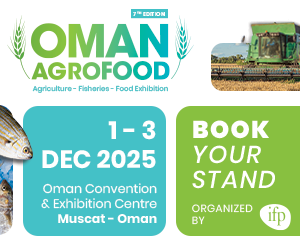Africa, with over 60% of the world’s arable land, holds immense potential as an agricultural powerhouse. Yet, despite this abundance, the continent struggles with food insecurity, relying on food imports that cost $60 billion annually. This dependency drains foreign-exchange reserves and exposes African economies to global price shocks, underscoring the need for modernization.
A Shift from Subsistence to Sustainable Agriculture
For decades, agriculture in Africa has been seen as a subsistence activity, sustaining rural populations but not seen as a key economic driver. This perception must change. Agriculture needs to be recognized as a vital industry that can boost sovereignty, create jobs, and support long-term growth. African governments must focus on improving rural productivity, not just urban consumer satisfaction, to reduce urban poverty and support rural development.
Overcoming the Barriers to Investment
To modernize agriculture, African countries must foster a favorable investment climate. Currently, high interest rates, limited subsidies, inadequate research, and poor infrastructure hinder growth. Farm production remains unappealing due to limited access to credit, lack of storage facilities, and insufficient rural infrastructure. Women, who run 85% of smallholdings, face additional barriers, as they often lack land ownership and access to financing.
Investing in Technology and Innovation
In wealthier countries, farming is increasingly high-tech, with access to advanced machinery, low interest rates, and digital tools. Africa, however, faces significant challenges, with much of its farming still relying on manual labor and outdated equipment. Modernization requires investment in technology, better access to credit, and the development of rural infrastructure like roads, water, and power.
Reducing Post-Harvest Losses and Boosting Productivity
High post-harvest losses are another challenge, with an estimated 30% of food produced in Africa wasted due to poor handling, storage, and transport. Improving these processes could increase productivity by a third without expanding the land under cultivation.
Stimulating Private Investment and Improving Infrastructure
To modernize agriculture, African governments must stimulate private investment. By creating favorable conditions, they can attract global financial institutions interested in long-term investment opportunities. Building food-processing facilities near rural areas could create economic hubs, boosting local economies and offering farmers better market access. Establishing commodity exchanges could further improve market efficiency, but these initiatives must be supported by infrastructure improvements, such as better warehouses.
The Role of Infrastructure in Agricultural Modernization
Infrastructure development is crucial for rural economic growth. Many African countries lack reliable electricity, transport, and water supply, which are essential for agricultural productivity. Improving these systems, along with education and healthcare in rural areas, will enable farmers to take advantage of modern opportunities.
The Importance of Internet Connectivity
Access to the internet is increasingly vital for agricultural modernization. It enables farmers to access financial services, commodity exchanges, and valuable information on prices and farming techniques. With the right support, including improved digital literacy, farmers can better leverage these tools to improve their livelihoods.
A Call for Comprehensive Reform
The transformation of Africa’s agricultural sector requires a comprehensive approach. Governments must invest in research, improve access to credit, upgrade infrastructure, and encourage private-sector involvement. With the right policies in place, Africa can harness its agricultural potential, achieving food security and economic growth.











































































